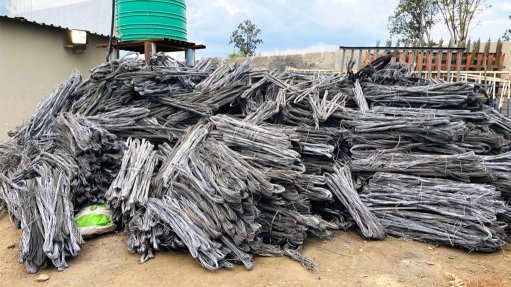N3 freeway truck chargers MoU signed
Zero Carbon Logistics (Zero CL) has signed a memorandum of understanding (MoU) with Chinese heavy equipment manufacturer Sany to be the technology provider for its proposed off-grid electric truck charging network on the N3 free way.
Zero CL says Sany will develop and operate six renewable-energy charging stations for electric trucks that use this busy highway between Johannesburg and Durban.
The MoU was signed at Sany’s Premium Customer Summit for Africa BU2024, held in China, which showcased innovations in the manufacturing of electric trucks and electric charging technologies.
“[Sany’s] technical expertise and superior design capabilities will ensure these facilities offer ultrafast seamlessly integrated green charging technology that will be able to charge trucks within 20 minutes with chargers, or allow for battery swapping in under five minutes,” says Zero CL cofounder Joubert Roux.
The six charging stations will form part of a proposed 120-truck charging network that Zero CL aims to develop on major freight routes across South Africa over the next few years.
Zero CL says the process to acquire permits for the first six sites on the N3 has started, and anticipates that they should be operational from November 2027.
In addition to collaborating on the charging technology for the N3, the MoU also envisages the two parties working together on the introduction and supply of Chinese-manufactured electric trucks and battery technology to South Africa.
“If government wants to realise its goal of achieving net-zero transport by 2050, it needs to introduce real incentives to encourage South Africans to choose electric vehicles or electric trucks over internal combustion models,” says Roux.
“This must include opening the market to cheaper imported models by implementing a six-year tax holiday on the import of EVs.”
Zero CL’s sister company, Zero Carbon Charge (Zero CC), says its research shows that an electric truck charged by Eskom’s mainly coal-powered network could emit 37.5% more CO2-equivalent emissions a kilometre, compared with an equivalent diesel-powered truck.
This means that the development of a green charging network is crucial to prevent the risk of increasing CO2 emissions as the world transitions to electric trucks, notes Zero CC.
Article Enquiry
Email Article
Save Article
Feedback
To advertise email advertising@creamermedia.co.za or click here
Press Office
Announcements
What's On
Subscribe to improve your user experience...
Option 1 (equivalent of R125 a month):
Receive a weekly copy of Creamer Media's Engineering News & Mining Weekly magazine
(print copy for those in South Africa and e-magazine for those outside of South Africa)
Receive daily email newsletters
Access to full search results
Access archive of magazine back copies
Access to Projects in Progress
Access to ONE Research Report of your choice in PDF format
Option 2 (equivalent of R375 a month):
All benefits from Option 1
PLUS
Access to Creamer Media's Research Channel Africa for ALL Research Reports, in PDF format, on various industrial and mining sectors
including Electricity; Water; Energy Transition; Hydrogen; Roads, Rail and Ports; Coal; Gold; Platinum; Battery Metals; etc.
Already a subscriber?
Forgotten your password?
Receive weekly copy of Creamer Media's Engineering News & Mining Weekly magazine (print copy for those in South Africa and e-magazine for those outside of South Africa)
➕
Recieve daily email newsletters
➕
Access to full search results
➕
Access archive of magazine back copies
➕
Access to Projects in Progress
➕
Access to ONE Research Report of your choice in PDF format
RESEARCH CHANNEL AFRICA
R4500 (equivalent of R375 a month)
SUBSCRIBEAll benefits from Option 1
➕
Access to Creamer Media's Research Channel Africa for ALL Research Reports on various industrial and mining sectors, in PDF format, including on:
Electricity
➕
Water
➕
Energy Transition
➕
Hydrogen
➕
Roads, Rail and Ports
➕
Coal
➕
Gold
➕
Platinum
➕
Battery Metals
➕
etc.
Receive all benefits from Option 1 or Option 2 delivered to numerous people at your company
➕
Multiple User names and Passwords for simultaneous log-ins
➕
Intranet integration access to all in your organisation


















